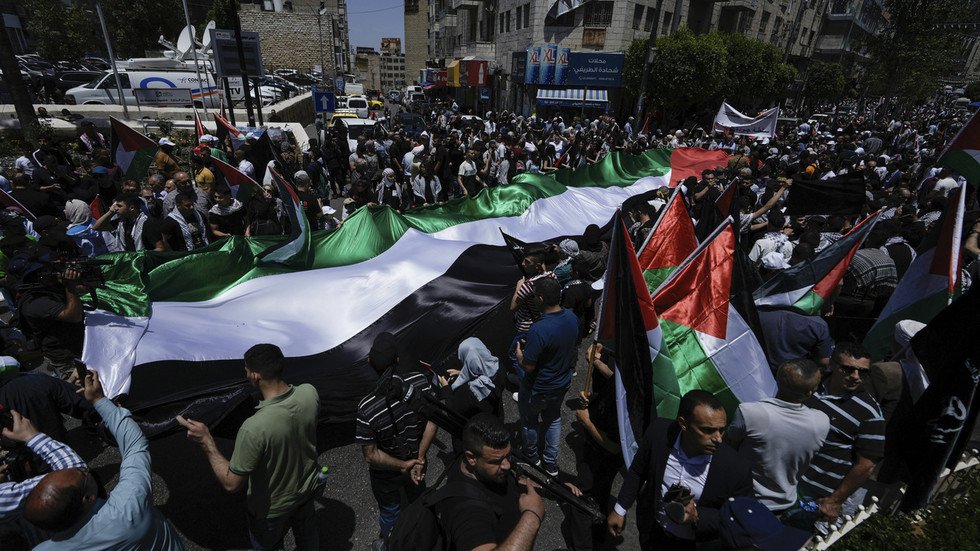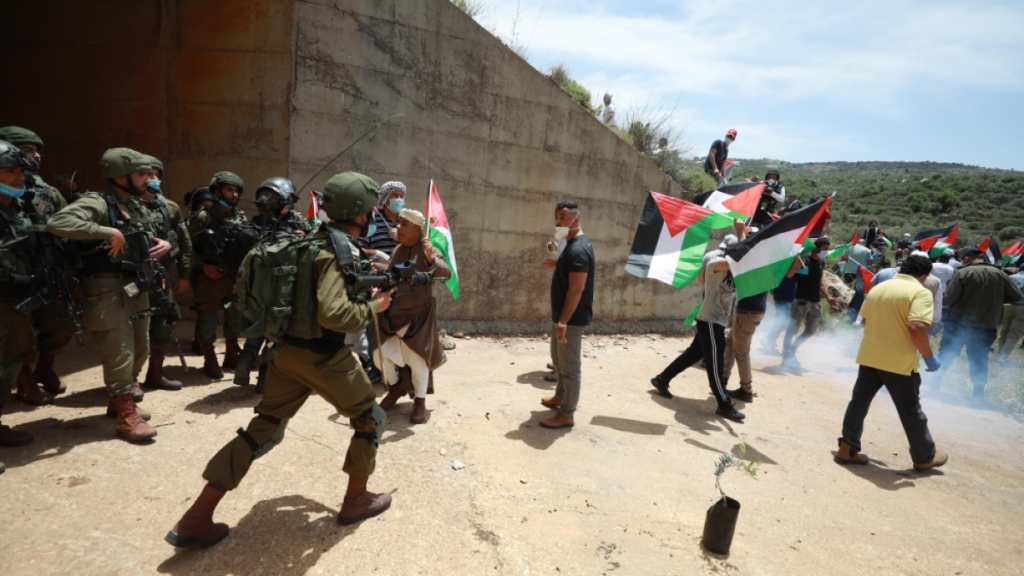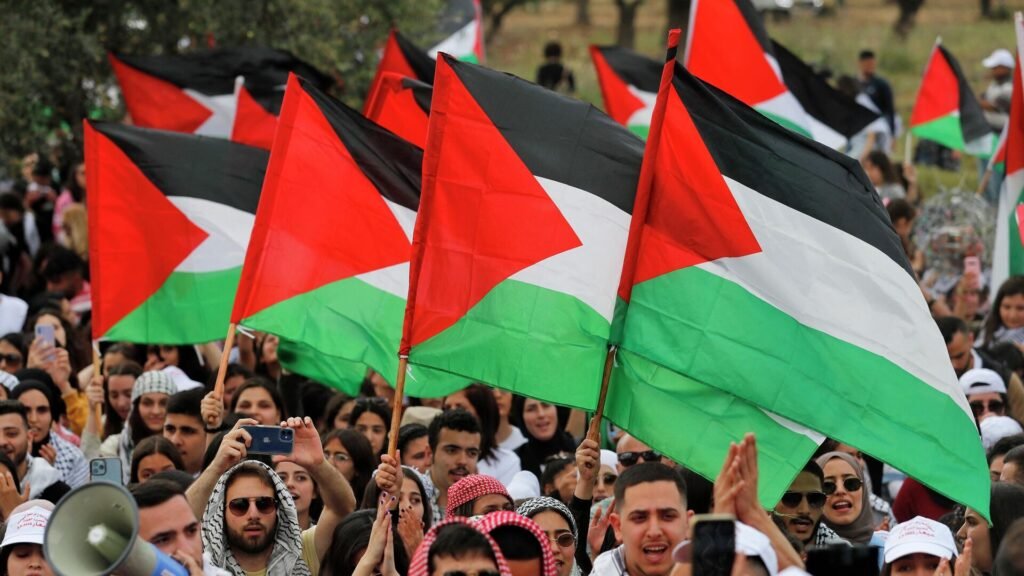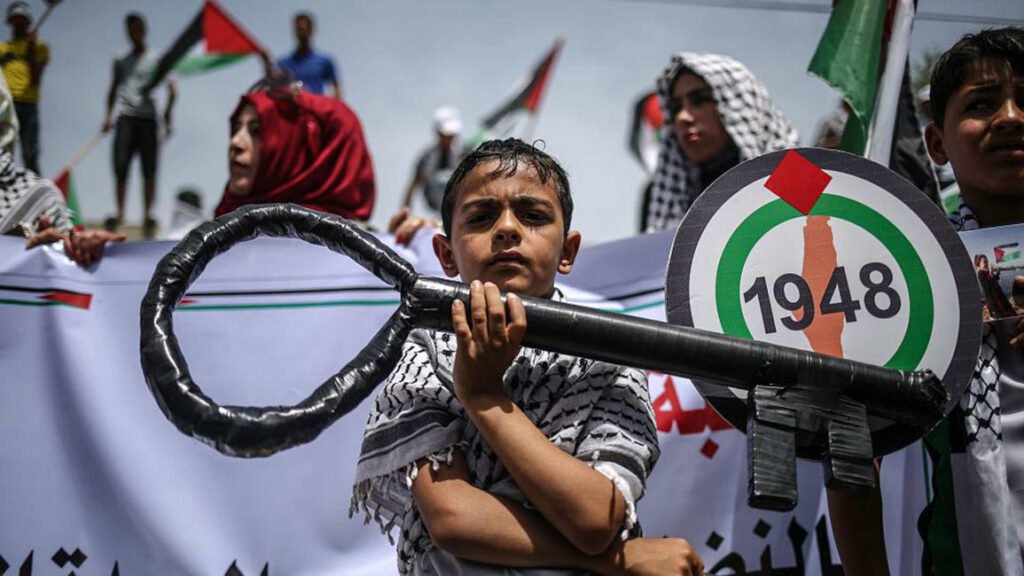Since Israel’s founding in 1948, Palestinians have endured systemic displacement, violence, and cultural erasure, events that culminated in the Nakba, or “catastrophe,” when Zionist forces forced nearly a million Palestinians from their homes, turning them into refugees overnight. Today, that legacy continues, as Gaza faces what many describe as a “Second Nakba.” In a grim twist of history, Palestinians who once fled to Gaza are now facing displacement again, as Israeli forces continue to bombard and evacuate the region.
For over eight months, relentless Israeli military campaigns have devastated Gaza, killing over 35,000 Palestinians, including more than 15,000 children. Entire neighborhoods have been leveled, forcing two million Palestinians into desperate displacement. The nightmare of 1948 has returned, as people flee under constant threat of attack, and Gaza’s once-thriving communities are reduced to rubble and memories.

The Roots of the Nakba: A Campaign of Ethnic Cleansing
The Nakba’s origins lie in a series of strategic plans by Zionist leaders to create a state on Palestinian land, plans which systematically targeted Palestinian communities. Starting with Plans A, B, and C, Zionist forces prepared for a brutal offensive aimed at depopulating Palestinian areas through terror. This culminated in Plan D, which laid out the systematic expulsion of Palestinians from their homeland. Israeli historian Ilan Pappé describes this plan as the decisive step that set the fate of Palestinians, paving the way for the establishment of a Jewish state by erasing the presence of its native population. Throughout 1948, entire villages were demolished, and civilians were forced to flee. In places like Deir Yassin, Tantura, and Lydda, violent massacres ensured that the Palestinian population would not return. Villages were erased and replaced with new Israeli towns, and Palestinian cultural landmarks were destroyed. As Moshe Dayan, a prominent Israeli leader, later stated, “Jewish villages were built in the place of Arab villages… The Arab villages are not there anymore.”
This erasure left an indelible scar on Palestinian memory, and each year on Nakba Day, Palestinians commemorate the lives lost and the homes that were never reclaimed.
Gaza’s Second Nakba: History Repeats Itself
Today, Palestinians face a second wave of mass displacement, with devastatingly similar tactics to those used in 1948. Since October, Israeli forces have conducted one of the deadliest operations in Gaza’s history. The small coastal strip, already strained by years of siege, has now become the epicenter of displacement and destruction. Approximately 300,000 people have fled from Rafah, Gaza’s last refuge, each day bringing new waves of traumatized families. Many of those fleeing are descendants of those displaced in 1948, now forced to relive the suffering of their ancestors.
Israel’s actions have left Gaza in ruins, with bombed-out buildings, hospitals overwhelmed by casualties, and children dying under the rubble. As Israel’s leaders openly declare intentions to “eradicate” what remains of Palestinian resistance, Palestinians are left with the stark choice between fleeing once again or facing annihilation.


A Legacy of Impunity and Injustice
Israel’s unchecked expansion and the displacement of Palestinians have been met with minimal international intervention. For over 70 years, the global community has largely allowed Israel to conduct its campaigns of ethnic cleansing with impunity, while Western powers provide diplomatic cover. Israel’s defense policies, labeled as “security measures,” often translate into violent acts against civilians. Settler violence, occupation policies, and the economic blockade of Gaza have restricted Palestinian freedoms, rights, and access to resources, rendering them stateless within their own land.
This international indifference has allowed Israel to solidify control over Palestinian territories.

Palestinian homes are demolished, lands are annexed, and barriers restrict movement, all while Israeli settlements expand unchecked. The dream of Palestinian statehood and self-determination seems more distant than ever, and the plight of Palestinians remains sidelined in global discourse.
The Call for Justice and Resistance
For nearly 15 million Palestinians worldwide, the Nakba has never ended; it continues in various forms. For those in Gaza, the West Bank, Jerusalem, and in exile, the struggle for justice remains alive. The collective memory of the Nakba is a powerful force, inspiring resilience and solidarity. Palestinians continue to demand recognition of their rights and a return to their homes. This demand extends beyond a single event in history and speaks to the ongoing struggle against occupation and apartheid.
Today, the world is once again bearing witness to the systematic displacement of Palestinians. As the Nakba continues, so does the call for justice, dignity, and freedom. Palestinians everywhere hold on to the hope that one day, the tragedy of displacement will cease, and they will regain the homes, lands, and rights that have been denied to them for generations.


